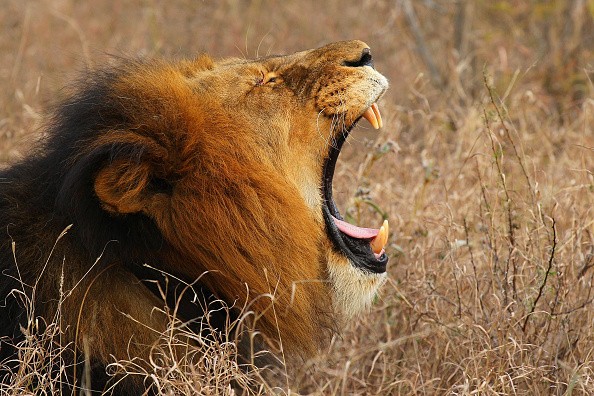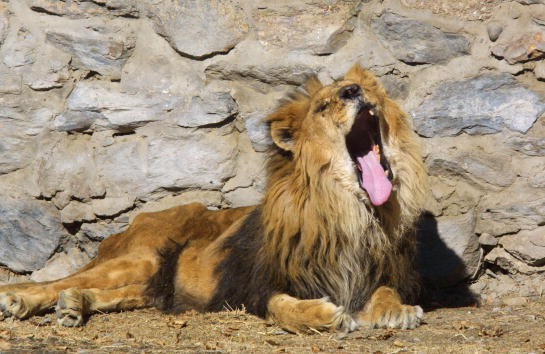Subtle social cues may be implanted in the lazy yawn of a lion, new research proposes. Watch the yawning of a group of lions, and it may appear like nothing more than big, lazy cats acting like they are sleepy, but recent research suggests that these yawns may be helping subtly in the communication of some crucial social cues.

A Discovery Partly Made by Chance
Yawning is not only infectious within lions, but it appears to aid in the synchronization of the predator's movements scientists report March 16 in Animal Behaviour. Elisabetta Palagi, an ethologist at the University of Pisa in Italy said that this discovery was partly made by chance.
While observing play behavior in spotted hyenas in South Africa, she and her team always had the opportunity to keep an eye on lions (Panthera leo) at the same time. And she noticed immediately that lions yawn quite constantly, concentrating these yawns in brief time periods.
Yawning is universal among vertebrates, possibly increasing the flow of blood to the skull, cooling the brain, and helping alertness, mostly when transitioning in and out of rest (SN: 9/8/15).
Also Read : Are Mountain Lions More Dangerous Than Humans? California Residents Startled by Large Feline Sightings
Yawn Contagion
Fish and reptiles usually yawn, but more social vertebrates such as mammals and birds seem to have accustomed to the behavior for purposes favorable to group living. In most species - like monkeys, humans, and even parakeets (SN: 6/1/15) - onlookers can be infected with "yawn contagion" of yawners causing onlookers to yawn not too long afterward.
Watching the lions yawn made Palagi recall her own work on contagious yawning in primates. Inquisitive if the lions' prodigious yawning was connected socially, Palagi and her colleagues started recording videos of the big cats, examining when they were yawning and any behaviors made during those times.
19 Lions Closely Monitored
Over four months in 2019, the scientists monitored 19 lions closely at the Greater Makalali Private Game Reserve, west of Kruger National Park. The team discovered that lions that sighted another member of the pride yawn were around 139 times as probable to yawn themselves within the next three minutes. But the yawn contagion didn't come to an end there.
Lions that contracted a yawn from another lion were 11 times as probable to mirror the movements of the main yawner than those that hadn't. This "motor synchrony" included one lion yawning, then another yawning, then the first standing and walking all over the place or laying down back and the other doing the same thing.

Harmonization of Their Group Movements
Contagious yawning might be crucial in lions for maintaining social cohesion, says Palagi. Yawns that aid in the harmonization of their group movements could help get the pride all on the very same page, important behavior for an animal that usually hunts and trains offspring cooperatively.
Palagi said: "If yawn contagion has developed to foster the bond creation, after a yawn contagion episode, the two animals require to do something together [like standing up and walking] to boost their probability of interacting."
Related Article : 3-Year Old Lion at Denver Zoo Euthanized After Severe Medical Condition
For more news, updates about lions and similar topics don't forget to follow Nature World News!
© 2025 NatureWorldNews.com All rights reserved. Do not reproduce without permission.





